Yuletide moments over centuries of Decembers interestingly wove into Bombay's socio-cultural fabric
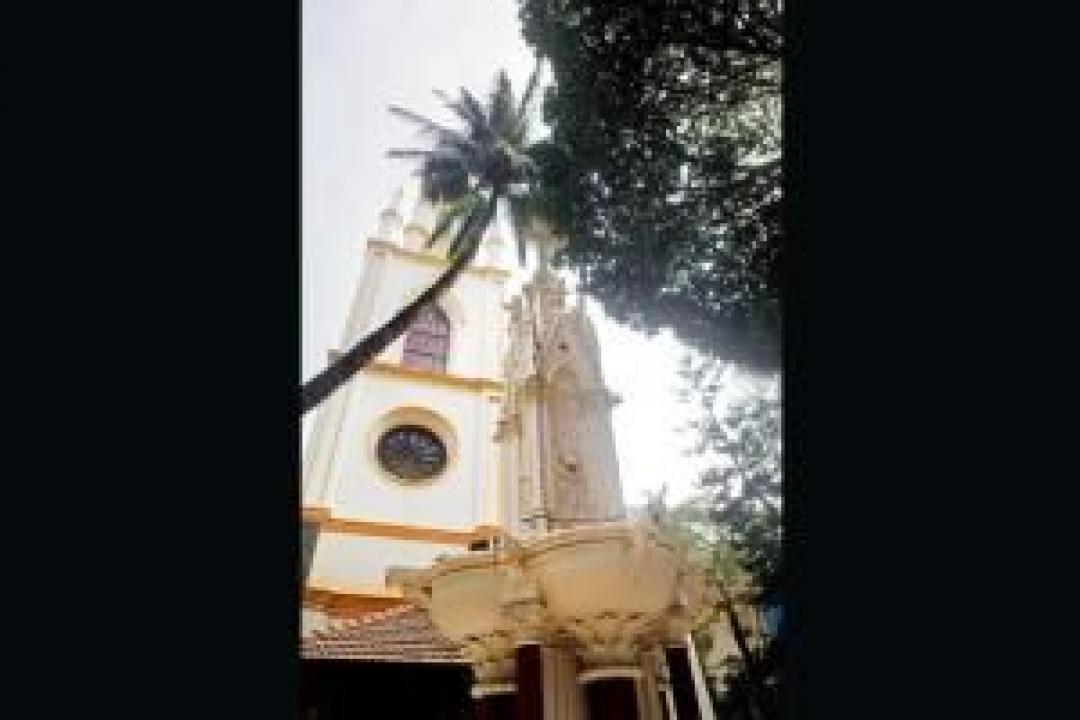
St Thomas' Cathedral opened on December 25, 1718. Presbyter-in-Charge, Reverend Avinash Rangayya, beside its fountain bearing the beautiful inscription: "Whosoever drinketh of the water that I shall give him shall never thirst". Pics/Ashish Raje
 Whosoever drinketh of the water that I shall give him shall never thirst." This lovely line is among my favourite public inscriptions. From the Gospel, according to St John, it graces a fountain added later to St Thomas' Cathedral, which opened in Fort on December 25, 1718, dedicated to Christ's apostle Thomas landing on Kerala shores. The cool assurance of this engraving is a striking non-architectural feature at St Thomas'. Design-wise, the cathedral was originally Bombay's sole structure with flying buttresses.
Whosoever drinketh of the water that I shall give him shall never thirst." This lovely line is among my favourite public inscriptions. From the Gospel, according to St John, it graces a fountain added later to St Thomas' Cathedral, which opened in Fort on December 25, 1718, dedicated to Christ's apostle Thomas landing on Kerala shores. The cool assurance of this engraving is a striking non-architectural feature at St Thomas'. Design-wise, the cathedral was originally Bombay's sole structure with flying buttresses.
What could a Parsi knight and a Cross-crowned fountain on the grounds of the city's first Anglican Church possibly have in common? Decoding the riddle in his book, Shells from the Sands of Bombay, Dinshaw Wacha reveals Sir Cowasji Jehangir donated the Gothic-style fountain as a personal contribution to the place of worship in whose protective shadow the Readymoney family scion had happily grown up, his ancestral home just yards away. The gesture earned him the sobriquet of Cowasji Cross.
ADVERTISEMENT
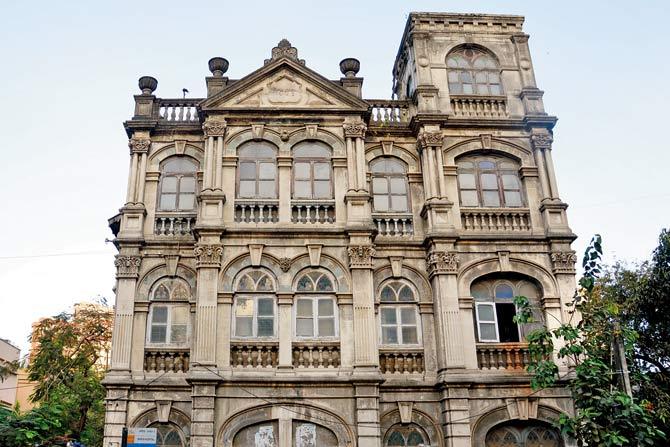
Welfare of Stray Dogs founder Abodh Aras' mother Alekha with a maali's dog in the garden of Dhun Lodge, the 1906-built Tardeo building demolished on Christmas Day, 2014. The Aras family lived next door in Dharma Nivas, earlier Tukaram Building. The son of pioneer printer Javji Dadaji, Tukaram first constructed Dhun Lodge as Javji Building. Pic/Alpana Aras; Dhun Lodge Pic courtesy/Bombaywalla Historical Works
The construction of the cathedral was urged by Governor Gerald Aungier, who loftily pronounced Bombay "the city which, by God's assistance, is intended to be built". Its Christmas Day inauguration was a significant event, warranting a 10-gun salute answered by every harbour ship. Fringed by plantain trees, St Thomas' was decked in palm branches.
"The pillars were adorned with wreaths of greens. The double crosses all over the room looked like stars," Olga Valladares noted in The Explorer's 1992 Xmas issue. Invitees took formally appointed seats for the long ceremony. Among those honouring the special Christmas service was Rama Kamati, a businessman-philanthropist wrongly jailed for treason two years on.
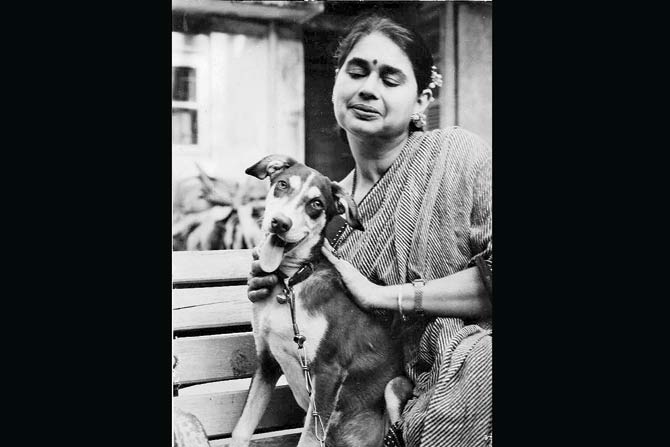
A little over a century after St Thomas' opened, the city saw the fascinating rise of pioneer printer Javji Dadaji Chaudhari, whose family is credited with erecting the Javji bungalow at Tardeo—what many of us knew as picture-pretty Dhun Lodge opposite the Sethna Agiary. Raised in 1906, razed in 2014, this residential gem glowed with arched, tinted glass windows and carved stone pillars. "It's heart-breaking to report that on Christmas Day, Dhun Lodge was demolished, a year after it was flattened to a shell of its former self," Simin Patel announced in her January 2015 Bombaywalla blogpost.
Javji Dadaji, whose name rechristened Tardeo Road, was only nine when he was left orphaned with a literacy level restricted to writing his name in Marathi. Forced to take up odd jobs to feed his family at that tender age, he sold fruit door to door. This brought him to Thomas Graham, of the American Mission's press in Bhendi Bazar. From a monthly salary of R2 for polishing types in the foundry training him to cut and cast these, Javji worked diligently through that drudge of smudge to afford a small printing press in 1867 he called Nirnay Sagar. Composing Devnagari letters and expertly crafting his own metal matrixes, he patented the Akhand typeface. Sanskrit publications he created circulated worldwide. Javji most notably produced the Panchang almanac used in every household.
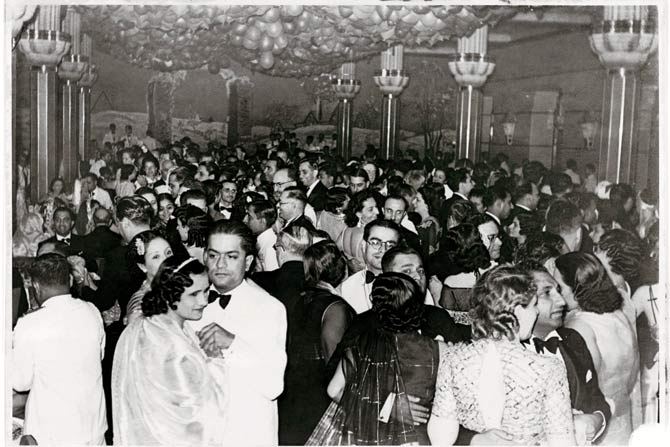
Christmas Eve gala night at the Taj, 1940. This particular dance found guests in extraordinarily high spirits, having received news of the Prohibition restrictions being partially relaxed. Pic Courtesy/The Taj Mahal Palace And Towers, From The Taj At Apollo Bunder By Charles Allen & Sharada Dwivedi, Pictor Publishing
As nationalism gripped the country, citizens closely watched patriots seeking peaceful ways to overthrow oppression. In a Christmas dinner speech aboard the Natal-bound SS Courtland in 1896, Mahatma Gandhi commended eastern values and principles. Fearing an "Asiatic invasion", Europeans of Durban planned demonstrations and assaulted him on disembarking.
The freedom quest entailed varieties of boycott. Among them was a cooler than usual reception for the third Prince of Wales stepping ashore Apollo Bunder on December 24, 1921. Muted welcome escalated to vigorous protest as the Bombay Provincial Congress organised a three-day hartal that claimed 58 lives. "The message was unmistakable: the days of the British king-emperors of India were numbered," write Charles Allen and Sharada Dwivedi in The Taj at Apollo Bunder.
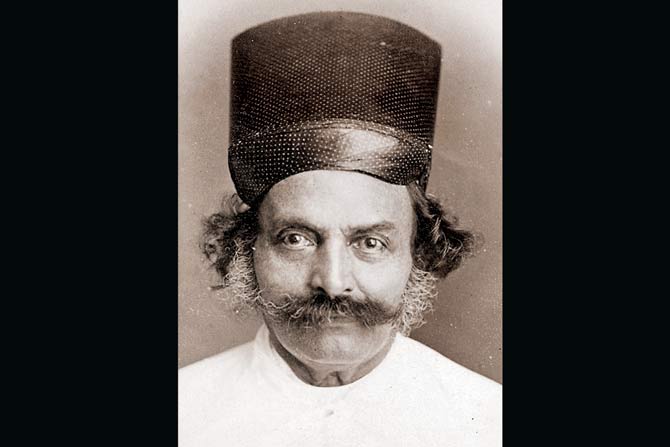
Sir Cowasji Jehangir Readymoney
The authors also paint a 20-years-after picture of an extraordinary 1940 Christmas gala, celebrating jolly good tidings: of partial lifting of the strict restrictions imposed on alcohol—"When full Prohibition came into force, the drop in profits had been catastrophic." The Taj's wilder neighbour, Greens (where the new Taj tower rose), seemed untouched by the tippling ban. Its receptionist Rusi Daruwala said, "The people were so rowdy, with free-fights, we had chuckers-out to throw them. When you closed the doors, they climbed up the drainpipes."
A 1937 account headlined by Bombay Man's Diary, the widely read society gossip column of The Evening News, suggests the grand 1903-built hotel piled on the revelry if its dance floor did demand some boisterous bopping: "Voices of jubilation swept the city and suburbs. It roared loudest at the Taj where there must have been two thousand souls bent on a very good time. An elaborate programme had been arranged by that enterprising duo Faletti and Framroze. The result was a proper Bacchanalian rout. The sedate and sober pranced and capered with the zest of two-year-olds at a birthday party." (Faletti and Framroze were then respectively the hotel Comptroller-General and Manager.)
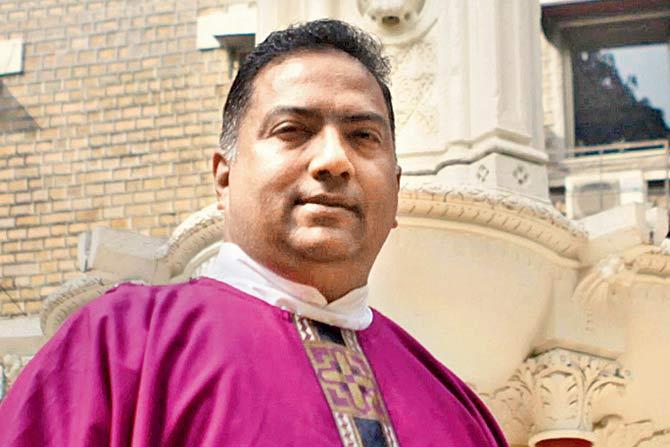
A theatre legend never giving up on partying with child-like excitement, "on Christmas Eve in Christmas Eve", as he quipped, was Alyque Padamsee. The horseshoe-shaped dining table and a rocking chair on which his mother would sit savouring her paan are acknowledged heirlooms at the family's famed Kulsum Terrace address. Less known is Alyque's father Jafferbhai's jhoola in the thespian's living room of his building at Breach Candy, called Christmas Eve. Local lore goes that pucca sahib Suleman Oomer, the Anglophile landlord of Oomer Park and Westfield Estate properties here, ran out of regal Brit names assigned to his buildings like Balmoral and Windsor Villa. This block of flats was simply referred to by the date it was ready to welcome tenants, on December 24, 1936.
Decades down, the mosaic-tiled terrace of Christmas Eve set the scene for Padamsee's rousing Xmas parties. The magnificent, century-old swing from Kathiawad was a wedding gift to Alyque's parents—"I distinctly remember my father lounge on it all day, smoking, contemplating the universe," said Alyque. "Me and my brothers crowded its arms. Craning over each other, we'd beg him to draw pictures for us."

Thespian Alyque Padamsee at his home in Christmas Eve building off Warden Road, on an antique Kathiawadi jhoola gifted to his parents at their wedding. PIC COURTESY/ Raell Padamsee
Around the time I started profiling the Padamsees in the mid-1980s, I discovered an unusual December desert tryst, researching a feature to mark 40 years since the World War II ended. Asked by my editor to scout for veterans caught in the thick of that conflict, I happened to interview the charmingly doughty Dhun Mehta, who had flown fighter planes as a young RAF pilot. "That's how I had Christmas lunch and tea with General Rommel, the Desert Fox," he recollected. Nicknamed for strategising sneak military attacks, Rommel commanded troops stationed in North Africa to help ailing ally, Italy, retain hold in Libya.
Mehta quoted Winston Churchill's compelling summary of Erwin Rommel: "We have a daring and skillful opponent against us, and, may I say across the havoc of war, a great general." Implicated in Hitler's assassination plot, Rommel chose suicide by cyanide. When we met, Mehta was a wizened figure, familiar in khaki shorts and sola hat, walking from his Nepean Sea Road home to the Parsi General, Breach Candy and Bhatia hospitals, where he volunteered reading to patients he regaled, along with the tale of his dramatic date with the Desert Fox. He mentioned an earlier such "Christmas Truce", on the battlefields of World War I, between British and German soldiers who suspended fighting for poignant moments to exchange gifts and play football together.
Meanwhile, how was suburban Bombay bringing in wartime Christmas beyond the ever-festive fields of Bandra? "Church" in sylvan Chembur of the 1940s, was St Anthony's Pavilion. Anette D'Cruz recalls the hub as church, school and club rolled into one. "On the 24th of December my grandfather would get out our kerosene lamp, trim the wick and clean it in readiness for Midnight Mass. At 11.30 pm, lamp lit, he led us single-file along narrow paths through open plots of land where nocturnal creatures like snakes roamed."
A flower-strewn altar was the handiwork of ladies who buffed it bright the evening before under the gaze of a cohort of framed saints. In warm hats and other cheery regalia, the faithful knelt at school desks doubling as pews. The sacristan, Herbert Cardoz, bustled about, finally igniting tall candles with a "magic stick" both lighter and extinguisher. Mass chanted in Latin solemnity, the choir trilled its best, underscored in the distant darkness by jackal howls.
Chembur had no parish till 1954. Before that its flock frequented St Stephen's, Marouli, for baptisms and burials. "For Christmas, the Archdiocese sent a priest to Chembur for the required number of days," D'Cruz says. "Once Chembur was declared the Parish of Our Lady of Perpetual Succour, we had bishops and priests in sacerdotal attire, and altar boys resplendent in starched white surplices and red gowns."
From makeshift Yuletide manoeuvres to full-throated Christmas cheer, the city's northmost corners brim with cribs and ring with carols, as the Catholic demographic clusters further there. Vasai to Vandre, Gorai to Colaba, they wish you a merry Christmas.
24.12. 1921
It was on Christmas eve of 1921 that the third Prince of Wales stepped ashore Apollo Bunder to a cooler than usual reception
Author-publisher Meher Marfatia writes fortnightly on everything that makes her love Mumbai and adore Bombay. Reach her at meher.marfatia@mid-day.com/www.mehermarfatia.com
Catch up on all the latest Crime, National, International and Hatke news here. Also download the new mid-day Android and iOS apps to get latest updates
 Subscribe today by clicking the link and stay updated with the latest news!" Click here!
Subscribe today by clicking the link and stay updated with the latest news!" Click here!








